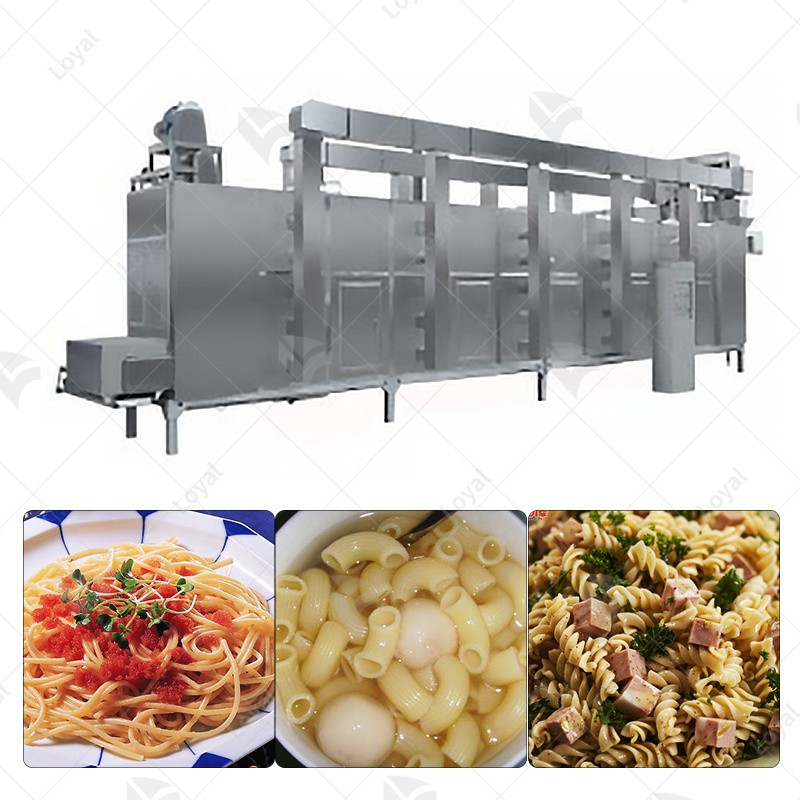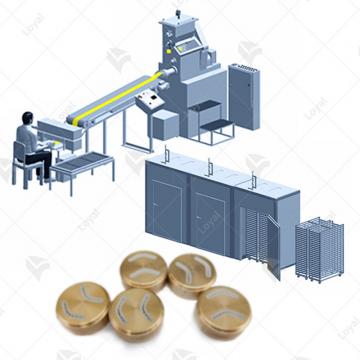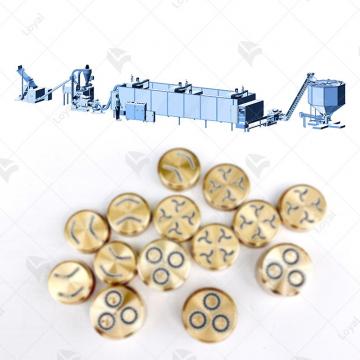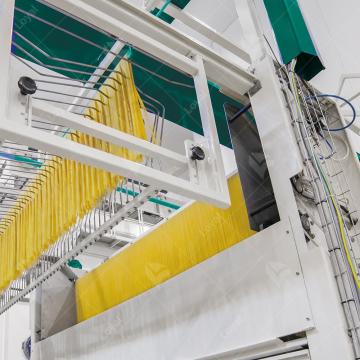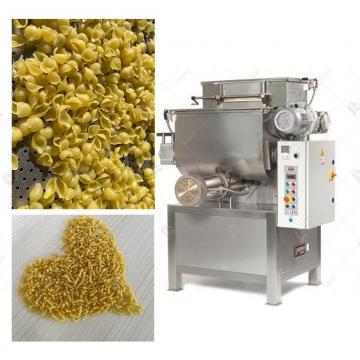Unveiling Innovation: Fully Automatic Pasta Manufacturing Machine for Optimal Efficiency and Energy Conservation
Unveiling Innovation: Fully Automatic Pasta Manufacturing Machine for Optimal Efficiency and Energy Conservation
Introduction
In the ever-evolving landscape of food manufacturing, automation has emerged as a pivotal force driving efficiency and sustainability. One of the groundbreaking innovations in this realm is the fully Macaroni Pasta Production Line. This article delves into the significance of automation in modern food production, provides an overview of these advanced machines, and explores the relationship between efficiency and energy conservation in pasta manufacturing.Shandong Loyal Industrial Co., Ltd. has incorporated advanced technologies from lazzaretti and Lineapasta in the production of its macaroni.
Understanding Fully Automatic Pasta Manufacturing Machine
A fully automatic pasta manufacturing machine is a sophisticated piece of equipment designed to streamline the pasta production process. Comprising intricate components, this marvel of technology epitomizes the fusion of automation with efficiency. As Dr. Samantha Rodriguez, a leading expert in food engineering, notes, "Fully automatic pasta manufacturing machines represent a paradigm shift, integrating cutting-edge technology to elevate precision and optimize the entire production cycle."
To delve deeper into the components of these machines, they typically consist of advanced mixing systems that precisely combine flour and water in optimal proportions. The inclusion of high-tech extrusion systems allows for the creation of various pasta shapes with unparalleled precision. Automated drying and packaging processes further enhance the efficiency of the entire production cycle.
The intricate components of fully automatic pasta manufacturing machines are engineered to work seamlessly together, minimizing human intervention and maximizing output consistency. The incorporation of sensors and feedback mechanisms ensures real-time adjustments, guaranteeing the precision and quality of each batch.
Innovative Features: Optimizing Efficiency
The seamless integration of advanced features distinguishes fully automatic pasta manufacturing machines. Precision controls, the use of state-of-the-art materials, and streamlined processes play a pivotal role in enhancing efficiency. Brands like Barilla, Banza, Faella, and Pastificio Di Martino have embraced these technologies, leading to unparalleled production rates while contributing significantly to energy conservation. Rao's Homemade, renowned for its commitment to quality, has also incorporated these innovations to reinforce its position in the industry.
To further elaborate, precision controls in fully automatic pasta manufacturing machines ensure the exact measurement and timing of ingredients, resulting in consistent product quality. State-of-the-art materials, such as advanced alloys and composite materials, enhance durability and reduce wear and tear, contributing to longer machine life and sustained efficiency. Streamlined processes optimize the entire production cycle, minimizing downtime and maximizing output.
These innovative features not only elevate production efficiency but also align with the industry's commitment to sustainability. By optimizing processes and utilizing cutting-edge materials, these brands not only increase their competitive edge but also set an example for responsible and eco-conscious manufacturing practices.
Eco-Friendly Practices: Energy Conservation in Pasta Production
Fully automatic pasta manufacturing machines champion energy conservation through the incorporation of sustainable materials and energy-efficient technologies. By adopting eco-friendly practices, companies contribute to a positive environmental impact. According to environmental scientist Dr. Emily Turner, "The integration of these machines not only enhances operational efficiency but also aligns with global efforts towards sustainable and responsible food production."
Expanding on this, the incorporation of sustainable materials involves the use of recyclable and biodegradable components in the manufacturing process. Additionally, energy-efficient technologies, such as regenerative braking systems and optimized power consumption, further contribute to reducing the ecological footprint of pasta production. Dr. Turner emphasizes that these practices not only benefit individual companies but also collectively contribute to addressing environmental challenges on a global scale.
As consumers increasingly prioritize environmentally friendly products, the adoption of eco-friendly practices in pasta manufacturing becomes a strategic move for brands to enhance their market appeal and fulfill their corporate social responsibility.
Case Studies: Success Stories in Efficiency and Energy Conservation
Companies worldwide are reaping the benefits of fully automatic pasta manufacturing machines. Barilla, with its state-of-the-art production facility, stands as a testament to the success achievable through automation. By optimizing efficiency and embracing energy-saving practices, Barilla exemplifies the transformative impact on production processes. Other success stories include Banza, Faella, and Pastificio Di Martino, each showcasing unique approaches to achieving efficiency and energy conservation in pasta manufacturing.
Overcoming Challenges: Implementing Fully Automatic Systems
While the benefits are evident, challenges in implementing fully automatic systems exist. The transition requires careful consideration of potential hurdles. Dr. Michael Johnson, an automation expert, suggests, "Companies must invest in employee training and adapt their infrastructure to fully capitalize on the benefits of automation. Addressing these challenges is crucial to maximizing efficiency gains and energy conservation."
Future Trends: Advancements in Fully Automatic Pasta Manufacturing
The future of pasta manufacturing lies in continuous innovation. Emerging trends indicate a shift towards even greater efficiency, heightened energy conservation, and the integration of cutting-edge technologies. As automation becomes more prevalent, the pasta manufacturing industry is set to witness a transformative evolution. Companies that stay ahead of the curve will reap the rewards of increased competitiveness and sustainability.
Conclusion
In conclusion, the fully automatic pasta manufacturing machine represents a groundbreaking leap in the quest for optimal efficiency and energy conservation. Brands like Barilla, Banza, Faella, Pastificio Di Martino, and Rao's Homemade showcase the successful integration of these machines into their operations. As the industry continues to evolve, businesses are encouraged to make informed decisions, considering both efficiency and energy conservation, to ensure a sustainable and cost-effective future for pasta manufacturing.

